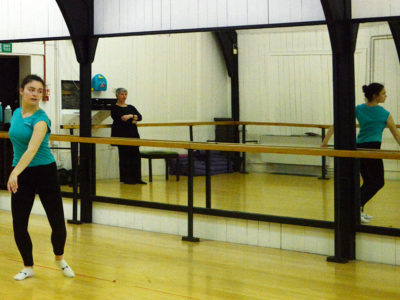Organisations making a difference
Here are some of the organisations and networks in Wales helping BAME women to progress in their careers:
This charity provides a range of services and training schemes to help BAME women in Cardiff and South East Wales improve their employability. This includes support with job applications and a reverse mentoring programme to match BAME women with women in public appointments in Wales.
Ethnic Minorities & Youth Support Team (EYST)
EYST supports BAME people in Wales with a range of projects focused on employment, education, family support and more. Its BME Skills Project provides mentors for individuals who want to develop in their careers and its Progression Project helps marginalised young people aged between 16 and 30 into sustainable employment.
Ethnic Minority Welsh Women Achievement Association (EMWWAA)
As well as recognising the contribution of BAME women and girls in Wales with biennial award ceremonies, the organisation also holds workshops for women to help women succeed in their careers. The last workshop was on developing confidence. Founder Meena Upadhyaya has also set up an organisation called Ethnic Minority Women in Welsh Healthcare, which focuses on mentoring and leadership skills.
Founded in 1992, this Cardiff-based charity works to make sure that all women, regardless of their background or social status, can find work and building rewarding careers in the Welsh workforce. It recently conducted research into the barriers faced by BAME women in the Welsh economy and provided recommendations for the Welsh government and employers to put in place. Take a look at the report to find out more.
“39% of non- White households are in relative income poverty, compared to 23% of White households.”
An incredibly powerful research by @chwaraeteg highlighting the issues BAME women face, well done to all involved in the project. https://t.co/331OcIDyF5
— Ali Baig (@AliBaig80) August 22, 2019
‘There is no excuse for lack of diversity in Cardiff, as the #BAME population in the city is 20%’ – #ChwaraeTeg #fairplay #WomensRights #hawliaumenywod pic.twitter.com/hqqFKx0YvH
— WCIA (@WCIA_Wales) October 10, 2019
What is unconscious bias?
Unconscious bias – the tendency to favour one thing over another – comes about because our brains make snap judgements of people and situations in order to function more quickly. Our own background, stereotypes and personal experiences all influence the way we perceive others. We automatically categorise people on their appearance as belonging to our in-group and if they do, we’re more likely to act in a friendly manner towards them.
Watch the video to learn more about it:
Check your bias
Back in 1998, psychologists in the US designed a series of tests to measure our unconscious bias based on race, religion and gender, among other things. The Implicit Association Test to uncover racial prejudice works by measuring how quickly people associate black faces with positive or negative words versus white faces with those same words. The test has been taken millions of times over the past 20 years and the results show that the majority of people tend to have a preference for their own race.
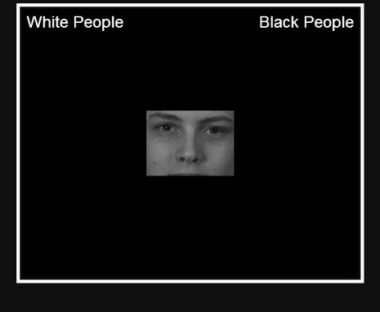
Take the test to find out your own unconscious biases.
Faced with discrimination, bias and high unemployment rates, women of colour are being forced to take their skills elsewhere
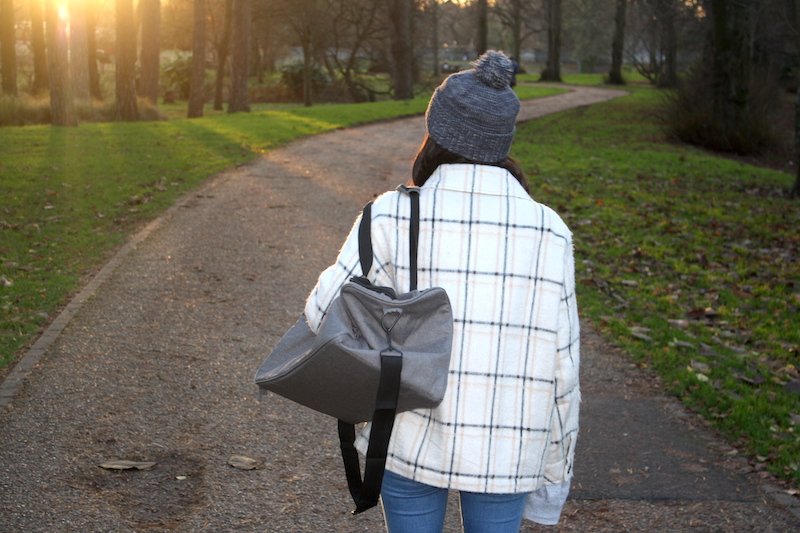
Entering the world of work after graduating is no easy feat in the current climate. If you’re a black, Asian or minority ethnic (BAME) woman however, things are even harder. Research shows that BAME women in Wales are far less likely to be employed and far more likely to be living in poverty than their white counterparts. When they do enter the workforce, prejudice, discrimination and bias prevent them from progressing in their careers.
Take Chisomo Phiri; she’s the perfect candidate on paper. She graduated from Swansea University with a 2.1 in Public Relations and Media. She was head of her student union, women’s officer for NUS Wales and even launched a national campaign to tackle period poverty. When it came to finding a job in PR however, she didn’t have much luck. “I applied for 15 jobs in Cardiff and got to the interview stage for just one of them,” she said. “The only reason I can think of as to why I wasn’t hearing back is unconscious bias because of my name.”
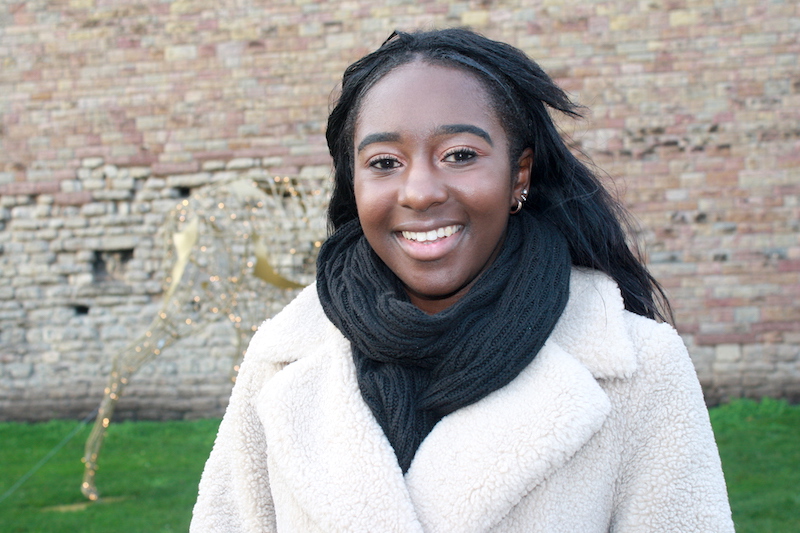
Job applications from people with white-sounding names are 74% more likely to get callbacks for jobs.
This should, perhaps, come as no surprise. Research shows that job applications from people with white-sounding names are 74% more likely to get callbacks for jobs than people with an ethnic minority name.
“There are so many talented young BAME women in Wales with degrees and skills but they’re not getting on in their careers, ultimately, because of their race,” said Chisomo.
A draining issue
Recent figures from the Office for National Statistics reveal that the unemployment figure for ethnic minority females in Wales is 5% higher than the UK average. One in seven ethnic minority women of working age are seeking jobs but are unable to find any. This figure is just one in 23 for white women.
Unsurprisingly, the poverty rate for black and minority ethnic communities is significantly higher than for white groups. Despite high levels of academic achievement, women of colour are overrepresented in low-paid jobs and are underrepresented in higher paid, decision-making roles. Why are BAME women in these positions? Fundamentally, because they experience double discrimination based on race and gender.
According to Dr Hade Turkmen, research partner at Cardiff’s gender equality charity Chwarae Teg, Wales is facing a brain drain of young, educated BAME women to England, particularly cities such as Bristol or London, where they perceive they will have a better chance of success.
Actions speak louder than words
While diversity strategies are commonplace in most Welsh workplaces, efforts to improve inclusivity are often little more than box-ticking exercises. It’s widely accepted that race and gender should be irrelevant when choosing the right person for a job. But stereotyping and affinity bias – which leads us to hire people who look like us and we can relate to – mean BAME women struggle to get their foot in the door.
“You know there’s something unfair going on but you can’t speak up about it.”
The problem isn’t just finding a job – workplace culture often leaves BAME women excluded. Susan Cousins, author of Overcoming Everyday Racism, points out workplace bias can be subtle and difficult to prove. “It’s being talked over in a meeting or not being invited to an event,” she said. “You know there’s something unfair going on but you can’t speak up about it.”
What are the solutions? According to Dr Turkmen, simple measures like anonymous CVs, diverse hiring panels and unconscious bias training can help to level the playing field. For Susan, workplace culture needs to become more open and inclusive. “If incidents do occur, people should feel comfortable to report them,” she said.
You can’t be what you can’t see
Another major reason for the brain drain is the lack of visible role models. “Role models provide a light and instil confidence. It’s important to see people like you being successful,” said Dr Turkmen.
That’s why medical geneticist Meena Upadhyaya OBE set up The Welsh Asian Women Achievement Awards (WAWAA) back in 2011. The aim of the biennial awards ceremony is to recognise and celebrate the contributions of BAME women from all walks of life to Welsh society. “We want to empower these women so that they can be role models and show other ethnic minority women and girls that they can succeed,” she explained.
Affecting real change
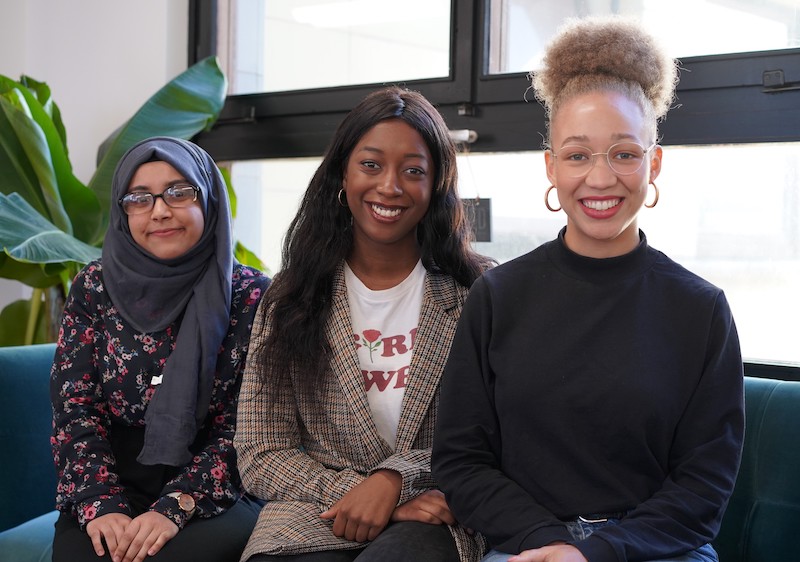
One Cardiff-based company which has realised the value of a diverse workforce is Cowshed communication and PR agency. Earlier this year, Cowshed launched a BAME internship programme in collaboration with the The Race Council of Wales. Founder, Vicki Spencer-Francis, said, “We were a team of fairly middle class white women and I was finding it hard to represent the whole country in our campaigns – Wales isn’t full of middle class white women!”
Vicki hopes the scheme will become a regular thing. “We certainly haven’t stopped yet. Our work is showing the benefits of employing people from diverse backgrounds.”
Temeka and Nadia, two of the interns that Vicki took on are now permanent fixtures on the Cowshed team. Nadia, who was unemployed for a year before securing the internship, said, “I’m really happy to be part of it but it’s quite sad that such internships have to exist.”
Action must be taken
Employers and the government must take action to tackle low BAME employment rates and lift people out of poverty. If they don’t start embracing diversity in a meaningful way, more and more talented young women will be forced to take their skills elsewhere.
Chisomo was working as a regional coordinator for the Ethnic Minorities & Youth Support Team for the past few months but she is leaving Wales in the new year. “I’ve just started a new job at a PR agency in Bristol. I’m using my degree and don’t just have to speak about being a black woman all the time,” she said. Unlike in Cardiff, she only applied for three jobs in Bristol before she was successful.
Organisations making a difference
Here are some of the organisations and networks in Wales helping BAME women to progress in their careers:
This charity provides a range of services and training schemes to help BAME women in Cardiff and South East Wales improve their employability. This includes support with job applications and a reverse mentoring programme to match BAME women with women in public appointments in Wales.
Ethnic Minorities & Youth Support Team (EYST)
EYST supports BAME people in Wales with a range of projects focused on employment, education, family support and more. Its BME Skills Project provides mentors for individuals who want to develop in their careers and its Progression Project helps marginalised young people aged between 16 and 30 into sustainable employment.
Ethnic Minority Welsh Women Achievement Association (EMWWAA)
As well as recognising the contribution of BAME women and girls in Wales with biennial award ceremonies, the organisation also holds workshops for women to help women succeed in their careers. The last workshop was on developing confidence. Founder Meena Upadhyaya has also set up an organisation called Ethnic Minority Women in Welsh Healthcare, which focuses on mentoring and leadership skills.
Founded in 1992, this Cardiff-based charity works to make sure that all women, regardless of their background or social status, can find work and building rewarding careers in the Welsh workforce. It recently conducted research into the barriers faced by BAME women in the Welsh economy and provided recommendations for the Welsh government and employers to put in place. Take a look at the report to find out more.
“39% of non- White households are in relative income poverty, compared to 23% of White households.”
An incredibly powerful research by @chwaraeteg highlighting the issues BAME women face, well done to all involved in the project. https://t.co/331OcIDyF5
— Ali Baig (@AliBaig80) August 22, 2019
‘There is no excuse for lack of diversity in Cardiff, as the #BAME population in the city is 20%’ – #ChwaraeTeg #fairplay #WomensRights #hawliaumenywod pic.twitter.com/hqqFKx0YvH
— WCIA (@WCIA_Wales) October 10, 2019
What is unconscious bias?
Unconscious bias – the tendency to favour one thing over another – comes about because our brains make snap judgements of people and situations in order to function more quickly. Our own background, stereotypes and personal experiences all influence the way we perceive others. We automatically categorise people on their appearance as belonging to our in-group and if they do, we’re more likely to act in a friendly manner towards them.
Watch the video to learn more about it:
Check your bias
Back in 1998, psychologists in the US designed a series of tests to measure our unconscious bias based on race, religion and gender, among other things. The Implicit Association Test to uncover racial prejudice works by measuring how quickly people associate black faces with positive or negative words versus white faces with those same words. The test has been taken millions of times over the past 20 years and the results show that the majority of people tend to have a preference for their own race.




